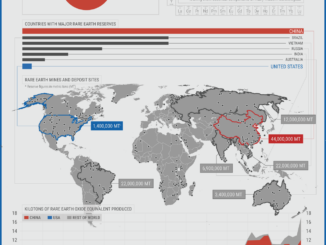
The local government in Zhongwei city has told 22 steel, ferro-alloys, calcium-carbide and silicon-carbide producers to restrict output from 3 June to 31 December.
No new projects in Zhongwei that produce energy- and pollution intensive products will be allowed to start operations this year. Existing producers must cut output by 30pc in June and by another 30pc from July-December, depending on their energy consumption quotas.
Zhongwei is a major production hub for ferro-silicon alloy and manganese metal. Domestic prices for 75pc grade ferro-silicon rose to 8,200-8,400 yuan/t ex-works today from Yn8,200-8,300/t on 1 June, with export prices increasing to $1,680-1,700/t fob from $1,660-1,680/t fob, as producers raised offers following the Ningxia control measures.
The price range for 99.7pc grade manganese flake was assessed at Yn16,000-16,200/t ex-works today, up by Yn100/t from 1-2 June. Export prices rose to $2,525-2,575/t fob today, up by $25/t from 1-2 June, in line with the higher domestic prices.
Elsewhere, the Shizuishan city government in Ningxia has also announced a set of energy consumption control measures for energy- intensive sectors. The city is a main production hub for silico-manganese alloy. The price range for 65/17 grade silico-manganese increased to Yn7,200-7,400/t ex-works today, up by Yn300/t from 1 June, in line with a potential 20pc fall in provincial alloy output and firmer ore feedstock costs.
Ningxia, Qinghai, Yunnan, Guangxi, Guangdong and Zhejiang were the provinces that faced the strongest environmental pressures in the first quarter of this year, according to statistics released by China’s main economic planning body the NDRC. The NDRC talked with provincial officials last month to urge them to implement measures to meet their annual energy consumption control targets.
The local government in north China’s Inner Mongolia region earlier ordered producers in high-energy consumption industries, including ferro-alloys, calcium carbide and graphite, to reduce their electricity consumption to 2.9bn kWh for March, compared with 3.5bn kWh in February and 3.8bn kWh in January, to meet its goal of restricting average electricity consumption to less than 3.8bn kWh in the first quarter.
Inner Mongolia is one of the main Chinese production hubs for ferro-alloys, with around 6mn t/yr of silico-manganese, over 1mn t/yr of ferro-silicon and nearly 4mn t/yr of ferro-chrome capacity. The ferro-chrome production hub of Ulanqab in Inner Mongolia reiterated calls for lower electricity consumption at the end of May.



